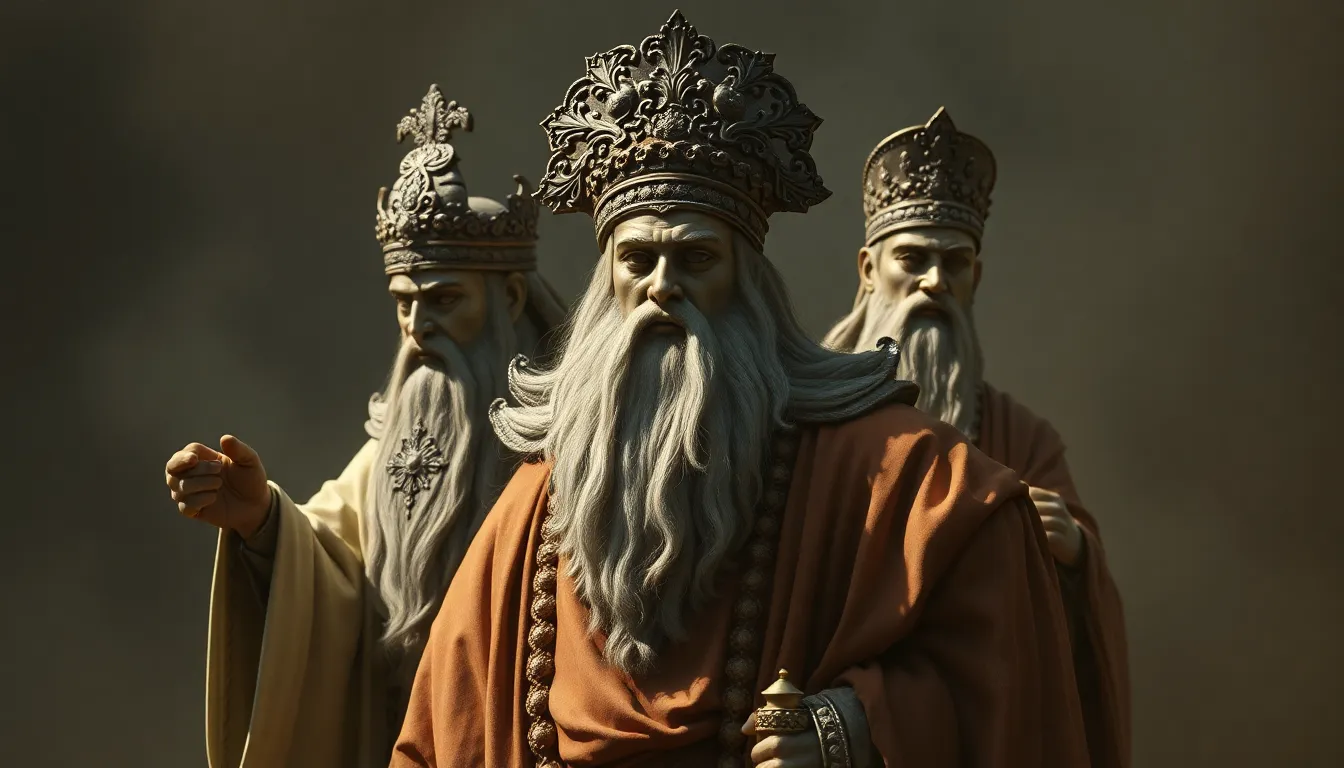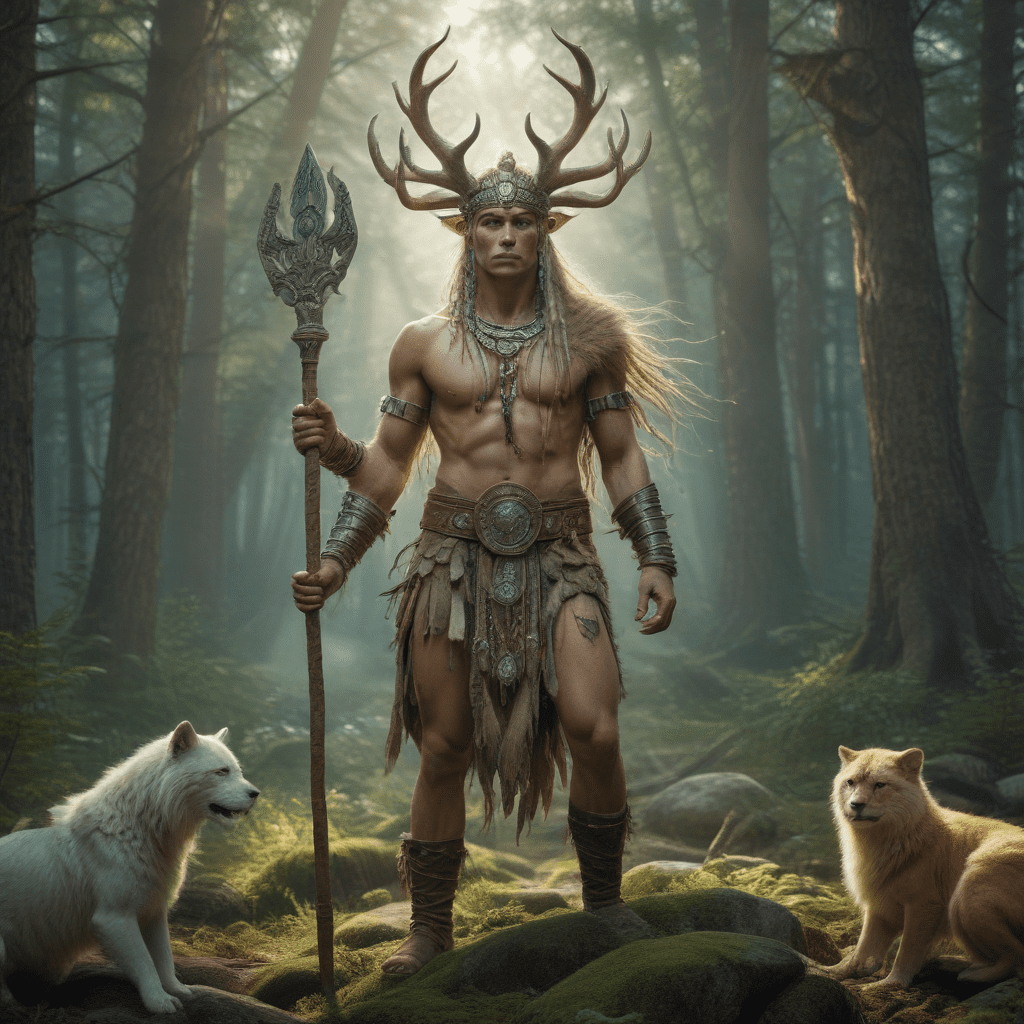The Most Influential Cultural Heroes in History
1. Introduction
Cultural heroes are individuals who have made significant contributions to society, inspiring others through their actions, beliefs, or creations. They serve as symbols of ideals, values, and aspirations, often embodying the characteristics that a society holds in esteem. Cultural heroes play a crucial role in shaping societal values and norms, influencing generations with their legacies.
This article will explore various cultural heroes throughout history, examining their roles across different domains, including mythology, religion, politics, art, and contemporary society. We will also consider the complexities and controversies surrounding these figures, ultimately reflecting on the future of cultural heroism.
2. The Role of Cultural Heroes in Society
Cultural heroism can be understood as the embodiment of societal ideals, where individuals rise above the ordinary to inspire change, challenge norms, and lead communities toward better futures. Historically, the concept has evolved, with cultural heroes often reflecting the values and struggles of their times.
These figures impact identity and community by:
- Providing relatable role models for individuals.
- Uniting communities around shared values and narratives.
- Encouraging dialogue and reflection on societal issues.
3. Ancient Cultural Heroes: Myths and Legends
Throughout history, many cultures have produced legendary heroes whose stories serve to teach moral lessons and explain natural phenomena. Notable examples include:
- Hercules: A demigod known for his strength and heroic feats, representing the struggle against overwhelming odds.
- Gilgamesh: A king in ancient Mesopotamian mythology who embarks on a quest for immortality, highlighting themes of friendship and the human condition.
The significance of these mythological narratives lies in their ability to convey cultural values and societal norms, often providing lessons that remain relevant today. Ancient heroes teach us about courage, perseverance, and the complexities of human nature.
4. Religious Figures as Cultural Icons
Religious figures often transcend their spiritual roles to become cultural icons. Influential figures include:
- Buddha: His teachings on mindfulness and compassion have shaped Eastern philosophies and ethical practices.
- Jesus Christ: Central to Christianity, Jesus’s messages of love, forgiveness, and social justice continue to inspire millions.
- Muhammad: The Prophet of Islam, whose teachings emphasize community, justice, and moral conduct.
The interplay between religion and cultural identity is profound, as these figures influence cultural practices, ethics, and community structures worldwide. Their teachings have left lasting impacts on modern societies, shaping laws, customs, and interpersonal relationships.
5. Political Leaders as Cultural Heroes
Political leaders have often emerged as cultural heroes, inspiring social change and revolution. Notable figures include:
- Nelson Mandela: His fight against apartheid in South Africa and promotion of reconciliation has made him a symbol of peace and justice.
- Mahatma Gandhi: Known for his philosophy of non-violence, he led India to independence and influenced civil rights movements worldwide.
These leaders exemplify how political heroism can inspire collective action and change societal structures. Their legacies demonstrate the power of leadership in shaping cultural movements and advocating for human rights.
6. Artists and Writers Who Changed Culture
Artists and writers have played a pivotal role in shaping cultural values and societal norms. Influential figures include:
- Leonardo da Vinci: His innovations in art and science exemplify the Renaissance spirit and the pursuit of knowledge.
- Frida Kahlo: Her unique artistic expression and exploration of identity and gender have inspired generations.
- William Shakespeare: Considered one of the greatest writers in the English language, his works tackle themes of love, power, and human nature.
- Maya Angelou: Her poetry and activism have highlighted the struggles of African Americans and women, advocating for equality and justice.
The legacies of these artistic heroes continue to influence contemporary culture, encouraging reflection on societal norms and inspiring future generations of creators.
7. Women as Cultural Heroes
Women have often faced unique challenges in achieving recognition as cultural heroes. Notable female figures include:
- Rosa Parks: Her refusal to give up her bus seat sparked the Civil Rights Movement in the United States.
- Malala Yousafzai: An advocate for girls’ education, Malala’s bravery in the face of adversity has made her a global symbol for education rights.
The evolution of female representation in cultural narratives reflects broader societal changes, recognizing the contributions of women in various fields and their role in shaping history.
8. Modern Cultural Heroes in the Age of Technology
In today’s digital age, new cultural heroes have emerged, often influenced by technology and social media. Contemporary figures include:
- Steve Jobs: Co-founder of Apple Inc., Jobs revolutionized technology and consumer culture through innovation.
- Greta Thunberg: A climate activist whose passionate advocacy has galvanized a global movement for climate action.
The rise of social media has played a significant role in amplifying the voices of these modern heroes, allowing them to address pressing global issues such as climate change and social justice. Their influence highlights the intersection of technology and cultural heroism.
9. Critiques and Controversies Surrounding Cultural Heroes
While cultural heroes often embody positive ideals, they are not without complexities and flaws. Critiques include:
- The risk of idolization, which overlooks their human imperfections.
- The impact of historical revisionism, which can alter the narratives surrounding these figures.
- The importance of critical engagement, encouraging society to question and analyze the legacies of cultural icons.
Engaging with the complexities of cultural heroes allows for a more nuanced understanding of their contributions and the contexts in which they operated.
10. Conclusion: The Future of Cultural Heroes
The definition of cultural heroes continues to evolve, reflecting changes in societal values and challenges. As we look to the future, it is essential to recognize the diverse voices that contribute to cultural narratives and the importance of inclusivity in heroism.
In an increasingly interconnected world, new heroes will emerge, addressing contemporary issues and inspiring future generations. The ongoing dialogue about cultural heroes will shape our understanding of identity, community, and the values we hold dear.



